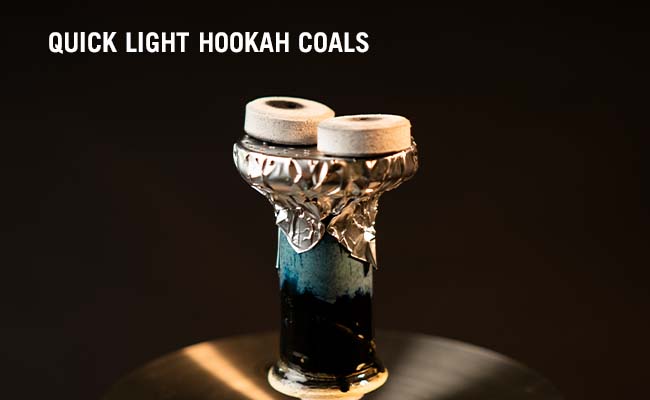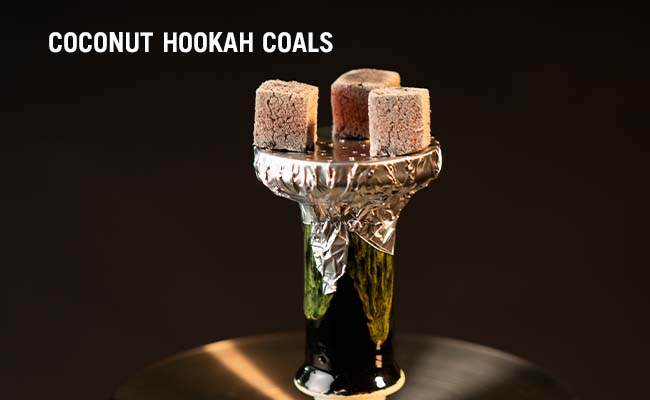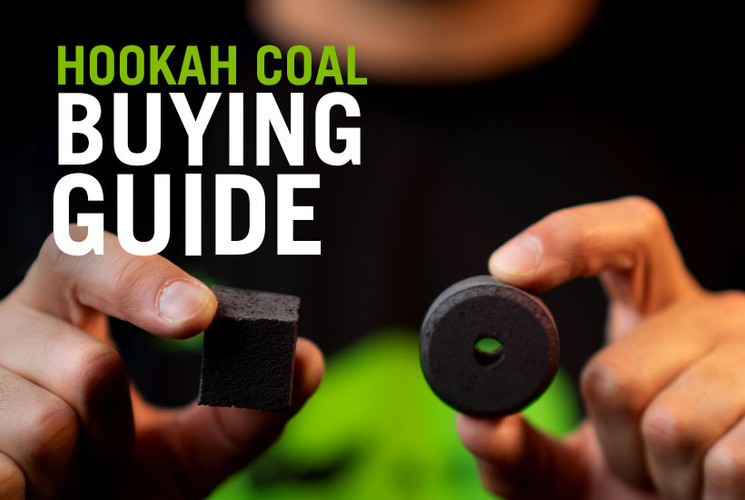Hookah Coal Types – A Beginner’s Buying Guide
18th Nov 2021
Understanding the difference in hookah coal types is key to having a good hookah session. It can be the reason between a session that is falling flat and one that exceeds all your expectations. Using the right hookah coal type and quality tailored to your smoking preferences ensures a long-lasting session that has a strong, vibrant hookah flavor throughout. On the other hand, using low-quality charcoal means your hookah will die quicker, impart a bad taste, and produce a lot of messy ash.
So how do we go about avoiding that you ask? Let’s begin by taking a look at some characteristics of both high and low-quality coals in our hookah charcoal quality chart below!
CHARACTERISTICS OF HOOKAH CHARCOAL QUALITY| High Quality | Poor Quality |
|
|
Popular Hookah Coal Types
Then, let’s go over the two hookah coal types that people commonly use today. There are coconut coals and quick light coals. Most of us started out with quick lights but quickly realized there is something better out there something more to life than rushing your precious hookah session.
Quick Light Hookah Coals
Quick light hookah charcoal have the benefit of lighting instantly with a lighter, meaning they are useful in outdoor settings when you cannot use a burner. But the positives really stop there. If used inside, the smell that comes from this charcoal is usually not very pleasant. The harsh taste and short duration of heat can dampen your session, making them not the ideal type of charcoal available.

Pros
- They light quickly
- Convenient in certain situations
Cons
- Negatively impact the duration of your session
- Can add a bad taste to your flavor
- Typically have a bad smell when lighting
Coconut Hookah Coals
The superior charcoals in most situations, on the other hand, are coconut charcoal. These coals are made of smoldered and ground coconut shells that are compressed into briquets. Good quality coconut coals take longer to light (roughly 8-12 minutes) and require a very hot source of heat to be fully lit. The most common method to do this is with a single-coil burner, a coil stove, gas burner, or a blow torch (A campfire is a good alternative to this). If you want to read more about the importance of lightning your hookah charcoal fully/ properly, check out our blog detailing this!
Coconut coals for hookah can vary in shape, size, heat output, and longevity. They come in cubes, flats, wedges, and even circular shapes. Amongst hookah enthusiasts, the widely accepted shape is the cube. Cubes accommodate most configurations and you’ll be using two to three coals for a one-to-two-hour session. Keep in mind that there are other factors to consider including the heat output you desire, the size of the individual coals, the tobacco, and the heat management device you choose.
Coconut coals are also a great bang for your buck! Regular-sized cubes (25mm) range from $10-15 USD for 72 pieces (weighing 1 kilo). Assuming you use two pieces per session, that will net you 36 single round sessions per box. This can vary if you do longer sessions which will use more charcoal per head. Another common size is the 22mm coconut charcoal cube which costs roughly the same for 108 pieces or more (weighing 1 kilo). Since they are smaller than the regular size, you will need to use around three coals per single session. Assuming three pieces per session, that amounts to roughly 37 sessions per box. A benefit of using the smaller 22mm pieces is that you have more control over your heat with some heat configurations such as a foil setup.

Pros
- Don't add any taste to your session from the coals
- Session is usually 1+ hours without adding additional coals
- Less smell when lighting (assuming coals are of good quality)
- Good bang for your buck
- More control overheat management due to the use of multiple pieces
Cons
- Take longer to light
- More limited on locations where the charcoal can be lit.
All things considered, it’s always good to do some online research before purchasing hookah charcoal – and that includes reading this blog! You won’t be the first or the last person to try various options for hookah charcoal but luckily, we did a lot of the research for you already so you don’t end up with the wrong coals. We hope this blog is informative and helps you narrow down your next charcoal purchase. Until next time, smoke on!

